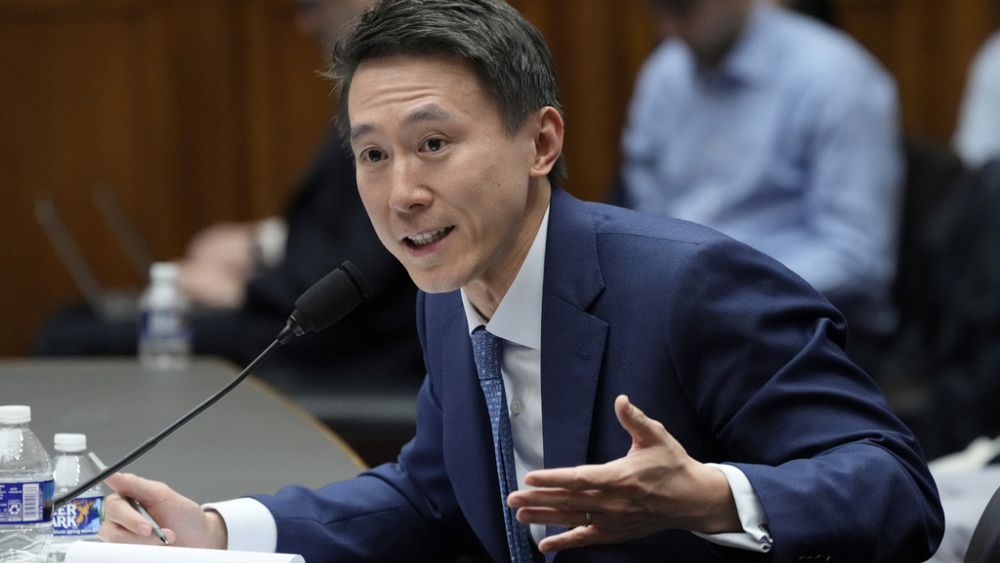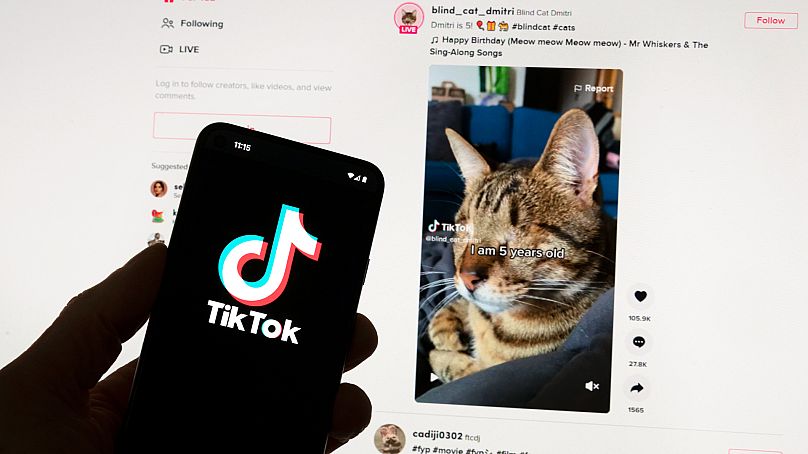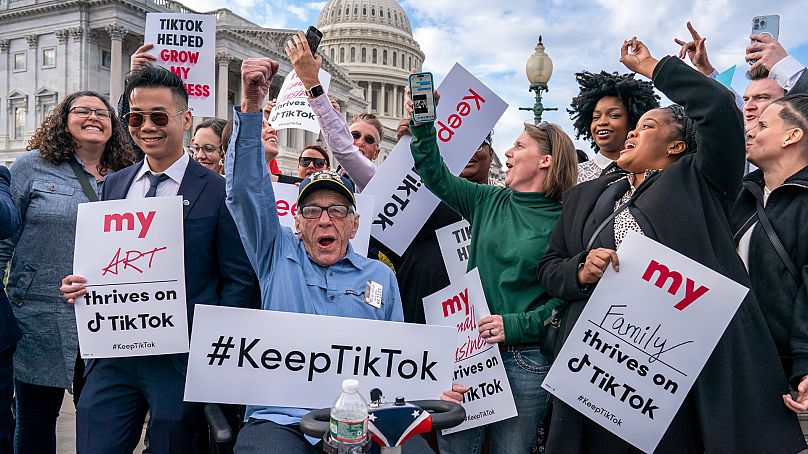
US lawmakers grilled the CEO of TikTok over data security and harmful content Thursday, responding sceptically during a tense committee hearing to his assurances that the hugely popular video-sharing app prioritises user safety and should not be banned.
Shou Zi Chew’s rare public appearance came at a crucial time for the company, which has 150 million American users but is under increasing pressure from US officials. TikTok and its Chinese parent company, ByteDance, have been swept up in a wider geopolitical battle between Beijing and Washington over trade and technology.
In a bipartisan effort to rein in the power of a major social media platform, Republican and Democratic lawmakers pressed Chew on a host of topics, ranging from TikTok’s content moderation practices, how the company plans to secure American data from Beijing, and its spying on journalists.
“Mr Chew, you are here because the American people need the truth about the threat TikTok poses to our national and personal security,” Committee Chair Cathy McMorris Rodgers, a Republican, said in her opening statement.

Chew told the House Committee on Energy and Commerce that TikTok prioritises the safety of its young users and denied it’s a national security risk. He reiterated the company’s plan to protect US user data by storing it on servers maintained and owned by the software giant Oracle.
“Let me state this unequivocally: ByteDance is not an agent of China or any other country,” Chew said.
TikTok has been dogged by claims that its Chinese ownership means user data could end up in the hands of the Chinese government or that it could be used to promote narratives favourable to the country’s leaders.
In 2019, the Guardian reported that TikTok was instructing its moderators to censor videos that mention Tiananmen Square and images unfavourable to the Chinese government. The platform says it has since changed its moderation practices.
ByteDance admitted in December that it fired four employees last summer who accessed data on two journalists and people connected to them while attempting to uncover the source of a leaked report about the company.
For its part, TikTok has been trying to distance itself from its Chinese origins, saying 60% of ByteDance is owned by global institutional investors such as Carlyle Group.
“Ownership is not at the core of addressing these concerns,” Chew said.
China has also said it would oppose any US attempts to force ByteDance to sell the app.
As the Energy and Commerce Committee questioned Chew, Secretary of State Anthony Blinken was questioned about the threat TikTok poses at a separate committee hearing Thursday. Asked by Ken Buck, a Republican of Colorado, if the platform is a security threat to the United States, Blinken said: “I believe it is.”
“Shouldn’t a threat to United States security be banned?” Buck responded.
“It should be ended one way or another. But there are different ways of doing that,” Blinken responded.
To avoid a ban, TikTok has been trying to sell officials on a $1.5 billion plan, Project Texas, which routes all US user data to Oracle. Under the project, access to US data is managed by US employees through a separate entity called TikTok US Data Security, which is run independently of ByteDance and monitored by outside observers.
As of October, all new US user data was being stored inside the country. The company started deleting all historic US user data from non-Oracle servers this month, in a process expected to be completed this year, Chew said.
Republican Representative Dan Crenshaw noted that regardless of what the company does to assure lawmakers it will protect US user data, the Chinese government can still have significant influence over its parent company and ask it to turn over data through its national security laws.

Congress, the White House, the US armed forces and more than half of US states have already banned the use of the app from official devices.
But wiping away all the data tracking associated with the platform might prove difficult. In a report released this month, the cybersecurity company Feroot said so-called tracking pixels from ByteDance, which collect user information, were found on 30 US state websites.
Other countries including Denmark, Canada, Great Britain and New Zealand, along with the European Union, have already banned TikTok from government-issued devices.
A complete TikTok ban in the US would risk a political and popular backlash.
The company sent dozens of popular TikTokers to Capitol Hill on Wednesday to lobby lawmakers to preserve the platform. And a dozen civil rights and free speech organizations, including the American Civil Liberties Union and PEN America, have signed a letter opposing a wholesale TikTok ban, arguing it would set a “dangerous precedent for the restriction of speech.»
